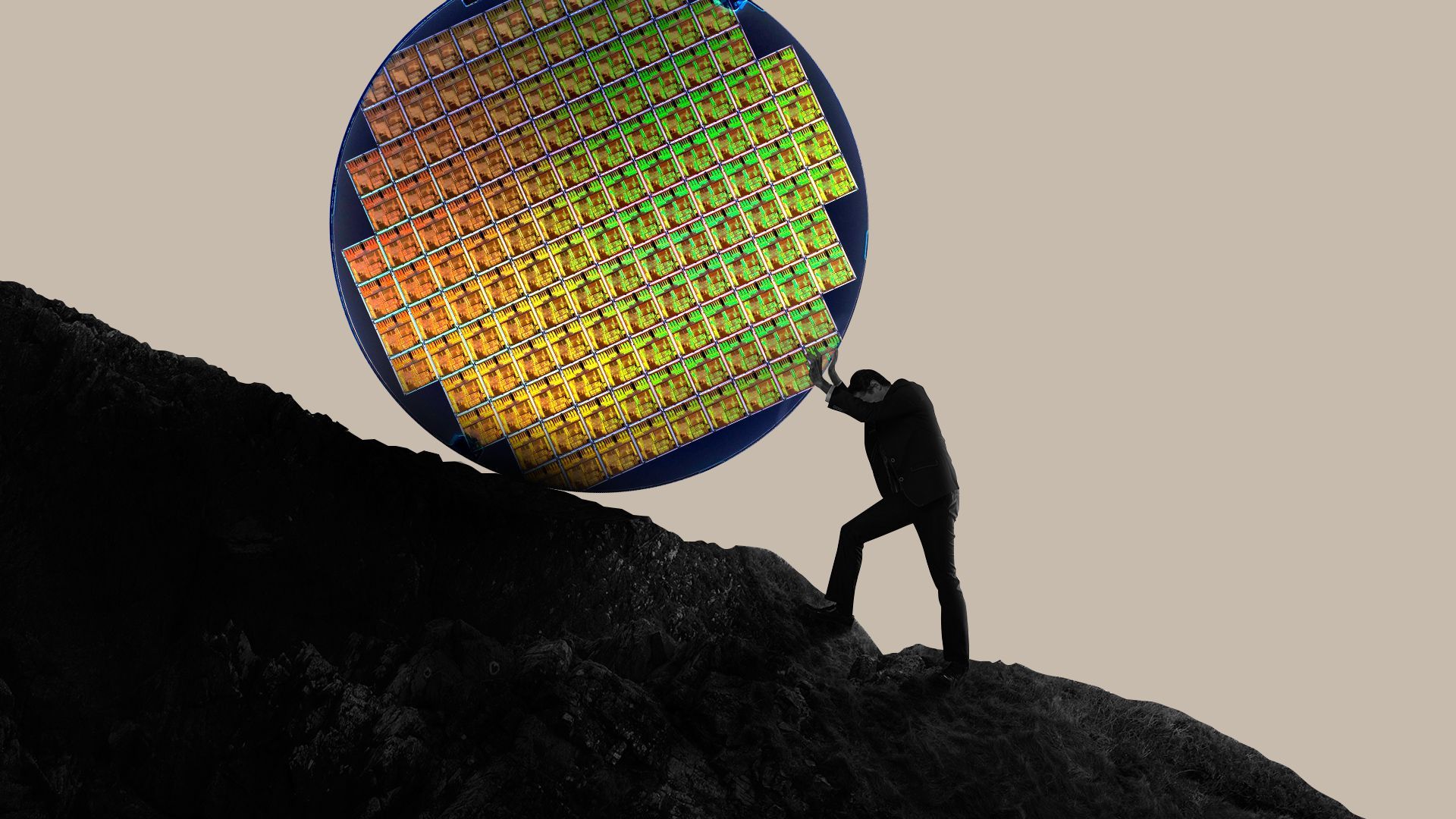| Intel, once known for using its chip manufacturing prowess to stay years ahead of the competition, now finds itself struggling to keep up. If the issues persist or worsen, it could follow the lead of most rivals who leave manufacturing entirely to partners. Why it matters: Chips are some of the only strategic tech products that are actually manufactured in the U.S., accounting for a quarter-million U.S. jobs. They're also a small but key piece in the power struggle between the U.S. and China. Driving the news: Intel is weighing just how much of its manufacturing could be handed off to a contract manufacturer even as it works to get its next-generation process up and running. - Costly delays are already handing a technical edge to rivals like AMD, which outsources its manufacturing to Taiwan's TSMC.
- The percentage of chips made in the U.S. has already declined from 37% in 1990 to 12% today, according to the Semiconductor Industry Association, the trade group that represents U.S. chipmakers.
Policymakers and chip industry reps are now pleading for government intervention to keep what remains of U.S. chip manufacturing in the country. The big picture: Beijing has grand designs on dominating the global chip market, which would in turn boost China's economic and technological might and could give the country an edge in A.I. and other next-generation technologies. - China's efforts have run into troubles of their own, but Intel falling behind will do the U.S. no favors.
Between the lines: For all the talk of how computers and smartphones should be made in the U.S., the practical reality is we have neither the infrastructure nor labor force nor economic setup to bring such manufacturing here. - Chips, on the other hand, are highly strategic, require a modest but well-paid labor force and are already made here.
What they're saying: Both Treasury Secretary Janet Yellen and Defense Secretary Lloyd Austin talked about the strategic importance of the U.S. chip industry in their confirmation hearings. - SIA head John Neuffer said in a statement to Axios, "Semiconductors are critical to our economy, national security, and future innovation."
- "To strengthen America's semiconductor supply chains and keep our country on top in chip technology, leaders in Washington need to fully fund the semiconductor manufacturing incentives and research investments called for in the annual defense bill."
That bill — the most recent incarnation of the National Defense Authorization Act — has a provision that provides for federal incentives for domestic manufacturing and investments in semiconductor research. - However, those provisions still need to be funded now through congressional appropriations.
Be smart: The right government investment and incentives could encourage other firms to expand U.S. chipmaking and prevent an exodus of chip jobs even if Intel does reduce the amount of manufacturing it does in-house. What's next: Pat Gelsinger, recently tapped to be Intel's new CEO, acknowledged on an earnings call last week that "it's likely that we will expand our use of external foundries for certain technologies and products." - But he maintained that he remains "confident that the majority of our 2023 products will be manufactured internally."
| 





No comments:
Post a Comment